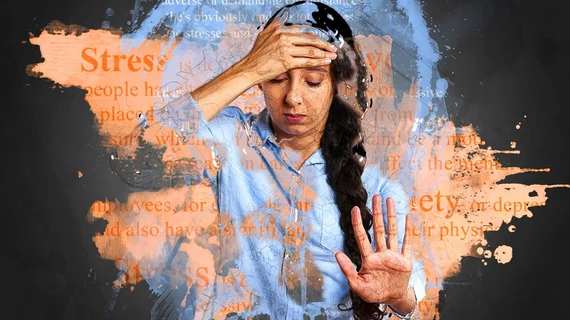Least stressed over the COVID crisis: Older adults
As the “panic-demic” descended on the U.S. and Canada in March and April, older adults (ages 60 and up) coped better with the stress than both young adults (18–39 years old) and middle agers (40–59).
So report psychology researchers at the University of British Columbia who recruited 776 participants to keep nightly survey-style diaries during that period.
The work was led by health psychology doctorate candidate Patrick Klaiber, MSc, and is running in the Journal of Gerontology: Psychological Sciences.
Survey questions plumbed for emotional-wellness indicators as well as signs of anxiety and other negative reactions to the unfolding COVID threat.
Analyzing the diary entries, the team made several key findings:
- Younger age predicted more concerns about the threat of COVID-19 across multiple domains, in addition to lower positive affect, higher negative affect and less frequent positive events.
- Younger adults had more non-COVID daily stressors and higher perceived control over stressors—but lower perceived coping efficacy than older adults.
- Younger adults had greater reductions in negative affect on days when more positive events occurred and greater increases in negative affect on days when non-COVID stressors occurred.
In their study discussion, the authors note that the findings above manifested as, for example, the younger cohorts experiencing more interpersonal conflicts at work and home.
However, Klaiber and colleagues urge ongoing societal awareness of seniors’ physical and mental health status.
“Although our findings revealed that older adults, on average, were more psychologically resilient in the face of COVID-19, their physical health should continue to be a major public health priority,” the authors comment.
They also suggest mental-health measures for all adults during the COVID crisis “could focus on modifying stress appraisals, promoting physically distanced daily positive events,” while behavioral health professionals “should consider the COVID-19 stressors faced by individuals at different points of the adult lifespan.”
In the university’s own news coverage of the study, Klaiber underscores the need for younger adults to practice healthy levels of self-care.
“While positive events led to increases in positive emotions for all three age groups, younger adults had the least positive events but also benefited the most from them,” he says. “This is a good reminder for younger adults to create more opportunities for physically distanced or remote positive experiences as a way of mitigating distress during the pandemic.”

